Here’s an idea:
We are all born with an instinct to resist other people’s attempts to control us. This instinct is designed to help us stay safe. To one extent or another, anytime something bad has happened in our lives, it is when we are not in control. The brain learns to associate this state of powerlessness with negative events, such as pain and danger. The greater the pain and danger associated with powerlessness, the greater the brain’s drive to avoid that state. In other words, with an awareness of the origins of this association, we can understand the reflexive statement, “you’re not the boss of me” in a whole new context.
Negative events don’t just include instances of physical harm and danger, but also emotional harm and danger. To a young child, few things are as instinctively dangerous as disapproval from a caregiver or trusted loved one. Parental attempts to control, no matter how well intended, are usually rebuffed, especially as the child begins to develop a sense of self somewhere around 18 months old. This is what we refer to as the terrible twos. It’s not a coincidence that as the child learns that they can resist parental control, we collectively refer to their behavior as terrible.
We often respond to this behavior with increased attempts to control it. This often escalates into a battle of wills which can erode the child-caregiver relationship over time. The more the child resists, the more the parent controls and the more the parent controls, the more the child resists. Obviously some control needs to be in place because toddlers and small children are not known for their sound decision making ability. However, as caregivers, we often exhaust our control allowance on fairly trivial matters and then have no resources when something more vital occurs.
For example, if I have argued with my child about what clothes to wear to school, making the point that those socks don’t go with those shorts, or that they’re wearing the same thing two days in a row, followed by a meaningless argument about whether or not they can butter their own toast correctly, then by the time I need to put my foot down about punching other kids or playing with fire, they have already grown tired of my voice and reflexively resist my attempts to control.
If you and your child are having a continual power struggle, why not give this a try:
If you take an honest look at yourself and decide that perhaps you have the tendency to be a bit too controlling as a parent, identify some areas that you could relax a little bit. These areas are usually identified by the fact that we are worried about what others will think about the behavior, instead of focusing on the possibility of any real harm. Once you have identified some of these areas. Give yourself a daily budget of things that you need to control. Say, today I will control 8 things. Once you have controlled your eight things, you cannot control anything else (unless someone’s life is on the line). If you aren’t careful, you might spend your budget before breakfast.
Because there are things that you actually need to control in your child’s day, you will learn to consider before you control, “Is this worth spending my budget on?” If I know we are going to have a video game argument later, perhaps I can let the order in which they eat their breakfast slide. What you may find, is that the less you control, the less you will need to argue later, even about the important things. And even if you do have to argue later, you will have more energy to do so because you haven’t spent it already.


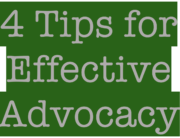





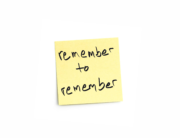








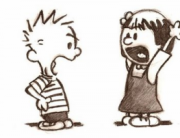























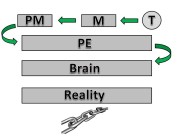

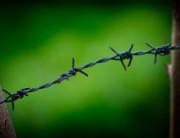







[…] A Control Budget: Picking Your Battles – by Ted Leavitt […]
This is GREAT!
This is exactly the kind of thing I do with my kids as well. I don’t argue on clothes, or spoon choices etc. I’ve learned not to “sweat the small stuff” as well as pick my battles. It has made for a much smoother interaction when there are things I do need to put my foot down on like taking off on bikes to a junkyard in the village and taking junk with the potential for physical hard and potential trespassing legalities.
Also. With my own perspective as an adult now, who came from an emotionally abusive childhood home these specific words spoke to me in my current healing i’m working on.
” The brain learns to associate this state of powerlessness with negative events, such as pain and danger. The greater the pain and danger associated with powerlessness, the greater the brain’s drive to avoid that state. In other words, with an awareness of the origins of this association, we can understand the reflexive statement, “you’re not the boss of me” in a whole new context. ”
This is exactly why I am struggling with household tasks I MUST as the parent do now, that my inner child is screaming no to. Because they were things I was forced to do far too young, and was the only responsible one for them in my family of origin home.
The deprogramming of how I see housework as a big negative in my life and avoid a LOT today as the mom and wife, has been a long hard struggle thus far.
Some days just the smell of dish soap and running the sink can take me back to those unsafe places my brain is programmed to run from.
Excellent food for thought, Ted, Thanks!
It is frightening if I think of just how complex my simple little mind really is!!!!!!! It is scary to think about what my life has caused me to live with NOW, today!! I actually truly ARE much damn stronger than what I give myself credit for, really I am!!!!!!
It is SO marvellous reading every single one of your insightful, well written articles and exercises and I am a mentally richer person already just for meeting you, I am definitely starting what you suggest in some of you work here!!!! I am hopeful and excited.
Thank you so, so much Ted!!
Love from SA!!!